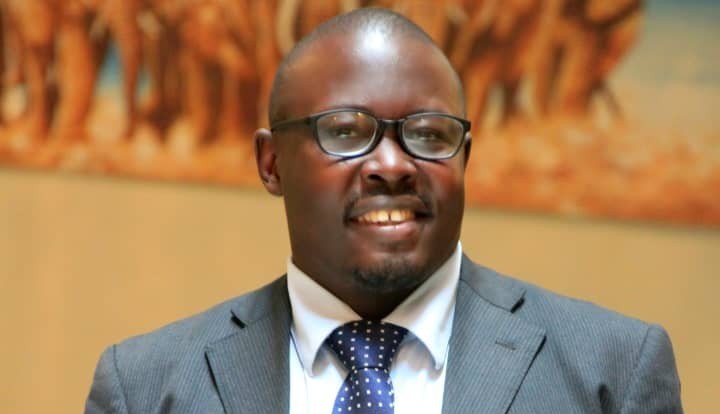By: Isaac Christopher Lubogo
We were never taught how to be alone. Not this kind of alone — the kind that follows you even in a room full of people, the kind that laughs with you during the day but lies awake with you at night. The kind that haunts survivors. The kind that sings in ancient tones — “Kyaalile, nikimalaho, ninze e’yasigaire o’kabuyungo…” — When all is said and done, I am the only one left…
That Lulamogi dirge is not just about funerals. It is the anthem of the emotionally abandoned, the spiritually deserted, the betrayed dreamers and the silent mourners of a generation lost — not just to war or disease, but to apathy, greed, and the violence of forgetfulness.
When the dust settles, when the parties end, when the inheritance is divided and the mourners walk away — who remains?
“Ninze e’yasigaire…” — I am the one left behind. I am the one carrying the memory of what used to be, the echo of laughter that once filled this house, the smell of maize on fire in a compound now turned quiet and grey.
Philly Bongole Lutaaya understood this emptiness too well. In Alone and Frightened, he poured out what so many of us feel but are too dignified to say:
> “I feel so alone… I feel so frightened… nobody seems to care…”
And still, we smile in public. We show strength in weakness. We put on designer sorrow, tailored grief, painted confidence. But in the corner of our soul, there is a quiet, naked cry: “I am afraid. I am not okay. I need someone to see me, really see me.”
Lutaaya sang for all of us who have ever had to cry quietly in a taxi window reflection. For those who bury their own pain while helping others carry theirs.
We are eyasigaire — the ones left behind.
Left behind after trust was shattered.
Left behind when the job ended and the friends disappeared.
Left behind by systems that used us and discarded us.
Left behind in marriages that turned into solitary confinement.
Left behind in families that stopped calling.
Left behind by lovers who moved on and forgot the names they once whispered under stars.
And yet, even in that deep ache, we remember a bird.
A little bird. Nkazaa Luugya.
It used to come at dawn — that sacred time when the world still believes in possibilities. Not to eat. Not to steal. But to clean. To clean our compounds with joy, sweeping away yesterday’s crumbs and regrets. It didn’t ask for food. It didn’t demand attention. It just served. Singing. Joyful. Grateful.
And what did we do? We killed it.
Yes — man killed Nkazaa Luugya.
Because innocence, in this world, is too quiet to be noticed.
Because we only love what entertains us, not what serves us.
Because we mistake silence for weakness.
Because we do not know how to honour the lowly.
Because in this era, it’s not enough to be good — you must be loud, branded, monetized, and aggressive.
So Nkazaa Luugya, like the mockingbird in Harper Lee’s story, was silenced.
And so are we. So are many good people around us.
There’s a part of us — the part that quietly loved, that cleaned other people’s messes, that tried to do right — that too has been wounded, silenced, or killed.
That part which only wanted to help, to serve, to sing a little joy into the brokenness — is now gone. Or dying.
And so we keep walking.
Like geese in a storm, chasing mirages.
Dreaming of lands we may never reach.
Hoping for jobs that ghost us.
Praying for relationships that end in betrayal.
Trusting politicians who speak with sugar and act with steel.
Longing for love that heals, but often finding love that wounds deeper.
Fighting for inclusion, only to be tokenized or discarded.
Life, it seems, is a cruel pursuit of shifting shadows.
We are like thirsty travellers in a dry land, running toward visions that disappear the moment we draw near.
And still, we sing.
Because the song remains.
Kyaalire…
Alone and frightened…
Nkazaa Luugya…
These are not just titles. They are our lived experiences.
We are the generation that buried its parents and never got to grieve.
We are the workers who smile at bosses who pay us in humiliation.
We are the lovers who gave all and were told it was never enough.
We are the dreamers whose visions died at the feet of corruption.
We are the sons and daughters whose names are forgotten by fathers who now praise strangers.
We are the siblings who sacrificed and were never thanked.
But we are also the survivors.
The eyasigaire.
The ones still breathing.
Still sweeping.
Still singing.
Still hoping.
We carry the burden of memory — and perhaps, that is our sacred calling:
To be the Nkazaa Luugya for this generation.
To clean what others have left in chaos.
To sing even if no one hears.
To love even when it hurts.
To remain kind — even when kindness feels like a form of self-destruction.
Yes, we are afraid. Yes, we are alone.
But we are also still here.
And if we are still here, then we are still holy.
Let the world kill the bird.
But let the song never die.
About the Author:
Isaac Christopher Lubogo is a Ugandan lawyer and lecturer








